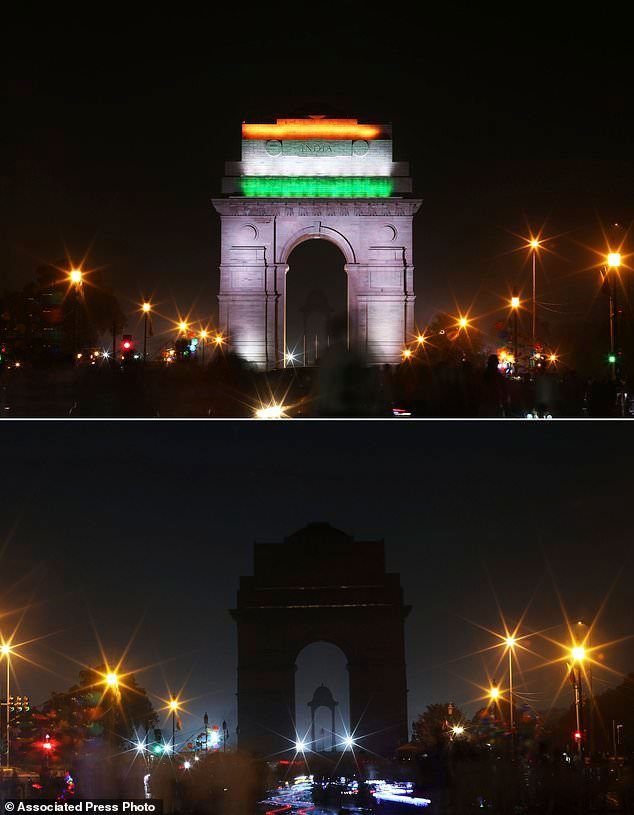
X
That scene was repeated over and over across the world on Saturday night: at Sydney's Opera House; at New Delhi's great arch; at Kuala Lumpur's Petronas Towers; at Edinburgh Castle in Scotland; at Brandenburg Gate in Berlin; at St. Basil's Cathedral in Moscow; at the Empire State Building in New York.
It lasted for just an hour and its power is purely symbolic. But in countries around the world, at 8:30 p.m., people were switching off their lights for Earth Hour, a global call for international unity on the importance of addressing climate change.Since beginning in Sydney in 2007, Earth Hour has spread to more than 180 countries, with tens of millions of people joining in, from turning off their own porch lights to letting the grand sites like the Opera House go dark.
Paris Mayor Anne Hidalgo said 300 Paris buildings observed the blackout to send a "universal message."
Those 60 minutes are "an opportunity" to shift "the consumption culture and behavior change toward sustainability," Indian Environment Minister Harsh Vardhan said.
All this happens and yet many people, of course, barely notice.
Around India Gate, New Delhi's monument to the Indian dead in World War I, thousands embraced the city's nightly warm-weather ritual Saturday. They bought ice cream and cheap plastic trinkets. They flirted. Young children rode in electric carts that their parents rented for a few minutes at a stretch.
But for an hour the arch stayed dark, a silent call for change.
In Jordan, the Royal Society for the Conservation of Nature arranged 11,440 candles on a hilltop in the capital of Amman, establishing a Guinness World Record for the largest candle mosaic.
The candles spelled the Earth Hour motto of "60+." However, attempts to light the candles largely failed because of wind on the hilltop, which is close to the city's landmark, the Amman Citadel.Since beginning in Sydney in 2007, Earth Hour has spread to more than 180 countries, with tens of millions of people joining in, from turning off their own porch lights to letting the grand sites like the Opera House go dark.
Paris Mayor Anne Hidalgo said 300 Paris buildings observed the blackout to send a "universal message."
Those 60 minutes are "an opportunity" to shift "the consumption culture and behavior change toward sustainability," Indian Environment Minister Harsh Vardhan said.
All this happens and yet many people, of course, barely notice.
Around India Gate, New Delhi's monument to the Indian dead in World War I, thousands embraced the city's nightly warm-weather ritual Saturday. They bought ice cream and cheap plastic trinkets. They flirted. Young children rode in electric carts that their parents rented for a few minutes at a stretch.
But for an hour the arch stayed dark, a silent call for change.
In Jordan, the Royal Society for the Conservation of Nature arranged 11,440 candles on a hilltop in the capital of Amman, establishing a Guinness World Record for the largest candle mosaic.
The candles spelled the Earth Hour motto of "60+." However, attempts to light the candles largely failed because of wind on the hilltop, which is close to the city's landmark, the Amman Citadel.